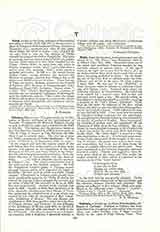

Table, titular see in Caria, suffragan of Stauropolis; according to Strabo (XII, 570, 576) it was located in a plain in Phrygia on the boundaries of Caria. Stephanus Byzantius (s.v.) mentions two cities of this name, one in Lydia, the other in Caria. Livy (XXXVIII, 13) says that it was on the frontier of Pisidia towards the coast of the Gulf of Pamphylia. The town in question, however, some coins of which are extant, was one which claimed to have been founded by one Tabus. Others derive its name from tabi, which in Semitic languages means “good”, and others from a native word taba, meaning “rock”, which seems a probable derivation. In 189 B.C. the consul Gneius Malius Vulso, having defeated the natives who blocked his passage, exacted from Tabae a fine of 25 talents and 10,000 medimni of wheat. Three bishops of Tabi are known: Rufinus, present at the Council of Ephesus (431); Severus, at Constantinople (553); Basilius, at Nicea (787) (Le Quien, “Oriens christ.”, I, 905). The “Notitiae Episcopatuum” continue to mention the see among the suffragans of Stauropolis until the thirteenth century. Table is now the village of Davas which gives its name to a caza of the vilayet of Smyrna; some inscriptions and numerous ancient remains are found.
S. PETRIDES

